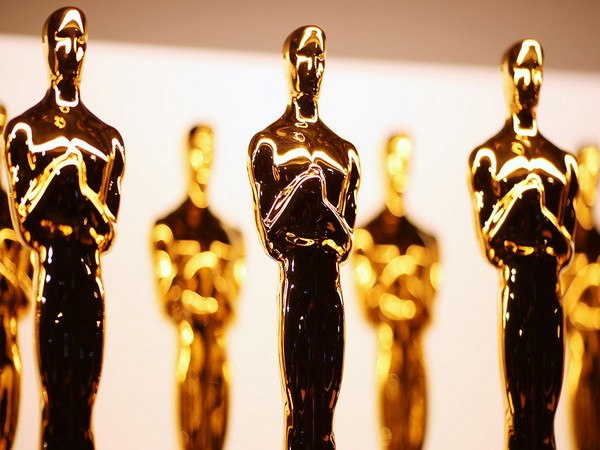Diverse talent in Hollywood takes reins to speed up change
"There’s never been a Black female director nominated in the history of the Academy Awards.” NEW PRODUCTION COMPANIES Following in the footsteps of successful creators like Oprah Winfrey, Tyler Perry, Shonda Rhimes and Issa Rae, who opened doors for underrepresented talent, screenwriter Amy Aniobi, TV writer Felicia Pride, actor Khalimah Gaston and filmmakers Fanny and Nelson Grande are building pathways to bring more diverse voices to Hollywood.

For Angela Bassett, vying for an acting Oscar for the second time next Sunday in a 40-year career, every role she has taken has been an opportunity to break through perceptions of "us as Black women." “To show our humanity, to tell the diversity of our stories, and to share the complexity of what it means to be Black and woman,” Bassett said last week at the African American Film Critics Association (AAFCA) Awards. Nominated for her role in “Black Panther: Wakanda Forever”, the 64-year-old waited 29 years for her second Oscar nomination.
While Hollywood has made progress on diversifying talent and storytelling since the 2015 outcry of #OscarsSoWhite - when all 20 acting nominations went to white actors - the pace of change is not fast enough for both the famous and those waiting to emerge. Diverse creators are building incubators, their own production pipelines and venues where they can screen work and receive feedback and support each other.
This year, there has been criticism that Black-led films like “The Woman King” and “Till” were overlooked for Oscar best picture and acting nominations, and the British Academy Film Awards (BAFTA) last month came under fire for having all white winners. Of the 13,252 Oscar nominees since 1929, 6% are from underrepresented ethnicities, a USC Annenberg Inclusion at the Academy Awards report concludes. And out of all Academy Award winners, only 2% have been women of color.
“There’s a consistent lack of recognition for Black female directors," “The Woman King” director Gina Prince-Bythewood said at the AAFCA awards. "There’s never been a Black female director nominated in the history of the Academy Awards.” NEW PRODUCTION COMPANIES
Following in the footsteps of successful creators like Oprah Winfrey, Tyler Perry, Shonda Rhimes and Issa Rae, who opened doors for underrepresented talent, screenwriter Amy Aniobi, TV writer Felicia Pride, actor Khalimah Gaston and filmmakers Fanny and Nelson Grande are building pathways to bring more diverse voices to Hollywood. Aniobi met actor Issa Rae after college and together they went from YouTube comedy series “Awkward Black Girl” to five-season Emmy-nominated HBO Max series “Insecure” with a majority Black cast. Now, Aniobi has a deal with HBO to develop shows.
Her production company SuperSpecial creates shows, films and shorts while her Tribe Writers' Program bridges the gap between independent writing and opportunities with mainstream platforms, like Disney and AMC. For Aniobi, though there are more Black shows than there have been in the last 10 years, the budgets are smaller. Without investing in stories and hiring Black executives, the industry is doomed to repeat mistakes, she said.
"When we are invested in each other as people, we don't think 'it's you or me.' It's for both of us or none of us," Aniobi said. Rhimes, creator of the medical drama “Grey’s Anatomy,” sparked TV representation in 2005 with a diverse cast in the ABC show. She developed her production company, Shondaland, which is behind the diverse period series “Bridgerton” on Netflix .
Echoing her work is Felicia Pride, who has written for “Grey’s Anatomy” and the Oprah Winfrey Network’s “Queen Sugar.” Despite having mentors when she first started, Pride knew there were obstacles for Black creators, so she started her production company, Honey Chile, which develops content for and by Black women who are 40 and older.
FIGHTING NEGATIVE STEREOTYPES Khalimah Gaston found opportunity on the Tyler Perry show “Ruthless,” as an actor and formed The Screening Room in 2016. Located in Atlanta and Los Angeles, it creates collaborative spaces for diverse talent to support each other.
Leaning into the model of Tyler Perry Studios in Atlanta, she gives artists a space to network, screen their work and get feedback. The Web series “Brooklyn. Blue. Sky.” was screened there, picked up by BET and directed by Rhavynn Drummer of Tyler Perry Studios. As the most underrepresented group in the industry, Latino talent is also keen to change their narrative.
There were 32 years without Latino nominees at the Academy Awards, with the most recent shutout in 2002. Only 18% of the total nods for Latinos have been in the four acting categories. “Every Latino actor I’ve met has dealt with the same thing of not getting opportunities, or having to play negative stereotypes that really affects the way our community is perceived,” Fanny Grande said.
When no production companies gave her a chance, she advocated for herself and her community by crowdfunding the 2021 film “Homebound,” centered on a non-stereotypical Latin American family. Fanny and husband Nelson Grande co-founded Avenida Productions, a platform for Latino filmmakers and others to work on short films, documentaries, commercials, large-scale projects and streaming.
Asian creatives, neglected or misrepresented for decades, are faring well this year, in large part thanks to Oscar front-runner “Everything Everywhere All at Once." This year's Oscar nominations had the highest number and percentage of Asian nominees of all time with 20 nominations. Half of those nominees were from "Everything Everywhere," the highest-grossing film ever for 10-year-old independent studio A24.
(This story has not been edited by Devdiscourse staff and is auto-generated from a syndicated feed.)









